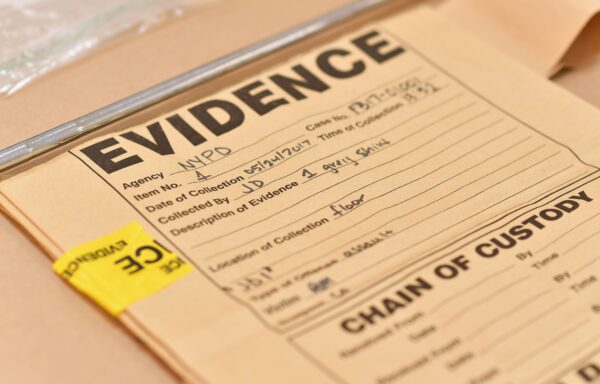The New York City Police Department surreptitiously took DNA samples from more than 30,000 people and kept them in a database, a lawsuit from the Legal Aid Society shows.
Once the DNA profiles are stored in the database, the department uses them in “genetic lineups,” comparing them to samples from previous and future crimes.
The legal advocacy group has filed a federal lawsuit demanding the NYPD removes the DNA profiles and eliminate the database, which attorneys say disproportionately targets Black and brown people.

“Thousands of New Yorkers, most of whom are Black and brown, and many of whom have never been convicted of any crime, are illegally in the City’s rogue DNA database, which treats people as suspects in every crime involving DNA,” Phil Desgranges, a supervising lawyer in Legal Aid Society’s Special Litigation Unit of the Criminal Defense Practice, said.
State law requires police to get a court order or a conviction before someone’s DNA can be kept in a state database. However, New York City’s Local DNA Index System includes DNA from more than 31,800 people who were questioned or arrested but never convicted.
NYPD detectives are instructed to offer water, soda, gum, food, or a cigarette to secure DNA samples for testing. Given that 75 percent of the people arrested in the city over the past decade reportedly have been Black or Latino, The New York Times estimates that the database most likely reflects the same racial makeup.
The NYPD said the database is vital in solving crime. Civil rights advocates say potential errors could increase the chances of wrongful convictions.
“You can change your Social Security number if you’re a victim of identity theft. You can’t change your DNA,” Albert Fox Cahn, the executive director of the Surveillance Technology Oversight Project, told the paper. “You’re creating this constant threat not for months, not for years, but the rest of your life, that you can be targeted by this information.”
One of the plaintiffs, Shakira Leslie, alleges she was traveling in a friend’s car when police found a gun in another passenger’s bag during a traffic stop. Leslie was arrested and taken to the station for questioning, where after several hours, detectives offered her a cup of water.
She was released and a gun possession charge against her was dropped. Leslie told reporters she was “shocked” to find out later that police used the cup to collect her DNA.
“I completely lost trust for NYPD,” Leslie said.
After a sample is collected by detectives, it is stored by the medical examiner’s office in the database. The medical examiner’s office said it operates according to scientific standards and the law.
The NYPD announced plans in February 2020 to discard samples more than two years old if the person is not part of an investigation or convicted of a crime. Legal Aid accused the city of moving “at snail’s pace.”
Politico reports that even though more than 1,000 samples were removed from the database a year later, another 2,849 were added. The New York Times reports that 4,000 profiles have been removed since 2020.
NYPD also promised to limit the DNA collection from minors, who currently only have DNA taken if they’re suspected of serious offenses. The New York City Council is reportedly expected to reconsider a 2020 measure that would prevent police from obtaining DNA samples from minors without an adult’s consent.
NYPD officials in 2019 said the process helped solve about 5,000 crimes in five years.
“The driving motivation for the NYPD to collect DNA is to legally identify the correct perpetrator, build the strongest case possible for investigators and our partners in the various prosecutors’ offices and bring closure to victims and their families,” NYPD spokesperson Sgt. Edward Riley said.
Legal Aid has named the city, the police department and the medical examiner’s office in the lawsuit. The group fears the database also lacks independent oversight.
“This database operates virtually unchecked, and despite promises from the city to reduce its size, the database has continued to grow at the expense of communities of color,” Desgranges said. “We simply cannot trust the NYPD to police itself, and we look forward to judicial review of these destructive practices to bring our clients the justice they deserve.”
More crime-fighting technology may be on the way for New Yorkers.
New York Mayor Eric Adams has proposed the use of facial recognition tools amid rising crime in the city. Adams announced the proposal in his plan in January to target gun violence. Facial recognition works by matching stills from video footage to images already in a database.


